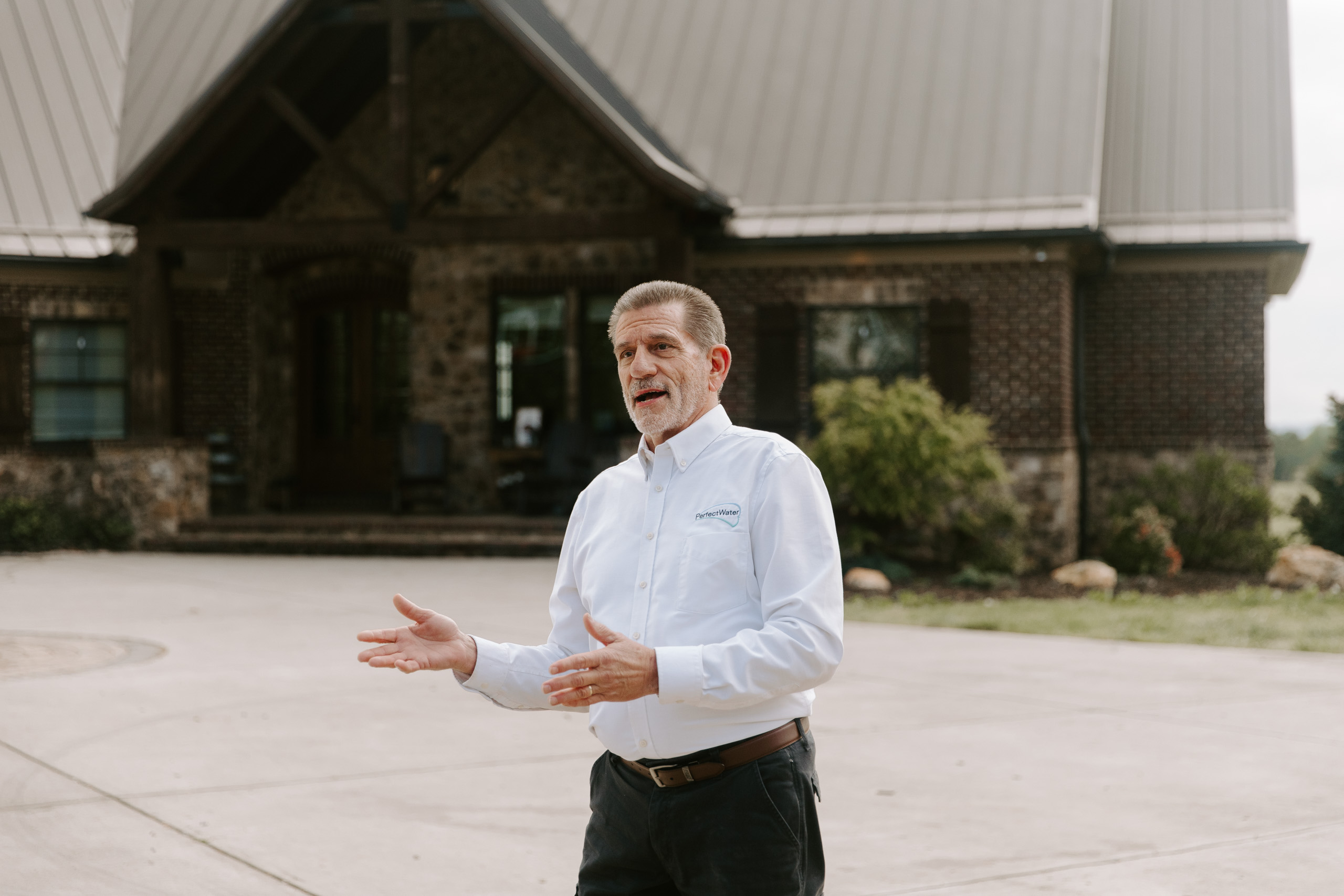The State of Rainwater Harvesting

Rainwater harvesting is evolving as a relatively young industry, but it is growing fast. Right now, all around the United States, rainwater harvesting is supplying thousands of people with potable water, as well as other water using processes in commercial realms.
Technology has transformed the abilities of water filtration and it has become very economical to be completely self-sufficient when it comes to water supply.
Stormwater Regulations – Driving the Rainwater Harvesting Industry
You may be surprised to know that the major driver of rainwater harvesting currently, from a top-down view, is stormwater regulations in commercial and residential development. It all started with the Clean Water Act in 1972, which is the federal stance on water pollution for river, lakes, and streams. Its objective is to restore and maintain the integrity of the nation’s waters and is one of the most influential environmental laws used today in the U.S.
The Clean Water Act is administered and enforced by the EPA. The EPA gives state governments permits to help regulate and enforce these laws. A major part of this process is the National Pollutant Discharge Elimination System (NPDES) Permits, which through the Clean Water Act, “prohibits anybody from discharging “pollutants” through a “point source” into a “water of the United States” unless they have an NPDES permit.” – EPA
Pollutants can be highly damaging to our nation’s water. Unnatural amounts of nutrients can cause algae growth and pollutants of all kinds can be harmful to fish and other aquatic life while contaminating our nation’s fresh water supply.
Stormwater Challenges
Enter stormwater regulations. Stormwater is a major driver in the NPDES. When one builds a structure, all the natural stormwater flow is interrupted, and now the water that would have fallen to the ground and flowed through its natural process is diverted and flushed out somewhere else and eventually ends up in a river, lake, or stream. That stormwater runoff still needs to go through its natural process to keep from dumping pollutants the water accumulated into rivers, lakes, and streams.
The solution was to have individual property stormwater regulations. The EPA understood that most pollutants that would be damaging to our nation’s water are flushed away with the first inch of rain. That lead to a general rule that the first inch of rain cannot leave the property for new construction and development. There are variations and other regulations regarding stormwater, but this is the general baseline.
New Construction
So what does this mean for new construction? For custom home builders? For homeowners who are looking to build their dream home?
The goal is low impact development. This means the goal is for the new building to not affect how the runoff would have occurred before the additions of these hard surfaces. A common solution are retention ponds which are ugly, harbor mosquitoes and other unwanted pests, and use large amounts of property that could be utilized for something else or sold. Some employ permeable pavers which can be costly with very few residual benefits.
Rainwater Harvesting as a Solution
Rainwater harvesting helps with stormwater retention while allowing one to actually use the water they have collected! It doesn’t take up space like retention ponds, freeing that land to be used for something else. It is also the best quality of water one can obtain over normal water sources such as municipal and well water. No wonder it is gaining popularity as a quality solution for the new regulations and the end user. Learn more benefits of rainwater harvesting.
Rainwater Harvesting Regulations and Codes
As the industry begins to develop, codes and regulations throughout the states have been instituted regarding the use of rainwater harvesting as the primary water supply for residential applications.
While there are a couple of states (Colorado and Utah) with strict regulations, most states welcome rainwater harvesting, and even encourage it due to the many benefits of water conservation and stormwater retention.
Read more on the laws and regulations of rainwater harvesting.
Organizations and Companies
The American Rainwater Catchment Systems Association is the nationally recognized authority on Rainwater Harvesting. They have helped create industry standards for quality rainwater harvesting systems.
There are multiple companies throughout the United States providing rainwater harvesting systems. Of course, PerfectWater, provides rainwater harvesting for residential applications, and Rainwater Resources, provides commercial, agriculture, and large-scale solutions for rainwater harvesting.
Rainwater Harvesting Applications
Residential Applications – Rainwater harvesting is being used in the residential market as the primary water source for homes. Rainwater is used for drinking, washing, bathing, irrigation, and whatever other reason a home might use water.
This is a great solution for those who: don’t have access to a municipal water supply, may need to drill a well, or would like to provide their family with the best water on the planet, free of chemicals and other contaminants common in municipal supply.
Commercial / Institutional / Industrial Applications – Rainwater harvesting provides an alternate option for water supply in commercial applications. Cooling towers, irrigation, toilet flushes, laundry, fire suppression, and other water-using processes.
(See our sister company, Rainwater Resources)
Agriculture Applications – Poultry, cattle, swine, and other animals, cooling, watering vegetation, and other water-using processes that happen every day on a farm. Rainwater harvesting can be a cost-beneficial way for water supply.
(See our sister company, Rainwater Resources)
The Future of Rainwater Harvesting
We believe that rainwater harvesting will continue to grow as a solution for stormwater challenges. Not only because it makes logical sense, but the facts of regulations and developmental progress point towards the need and the wide acceptance of rainwater harvesting.
Want to learn even more about rainwater harvesting in Knoxville and Nashville? Check out our Ultimate Guide to Rainwater Harvesting
You can also contact our team.
Ready to Take Control of Your Water Supply?
Don’t wait for water shortages or unreliable sources to disrupt your life. With our Rainwater Harvesting systems, you can enjoy a sustainable, reliable, and completely self-sufficient water solution tailored to your home’s needs.

